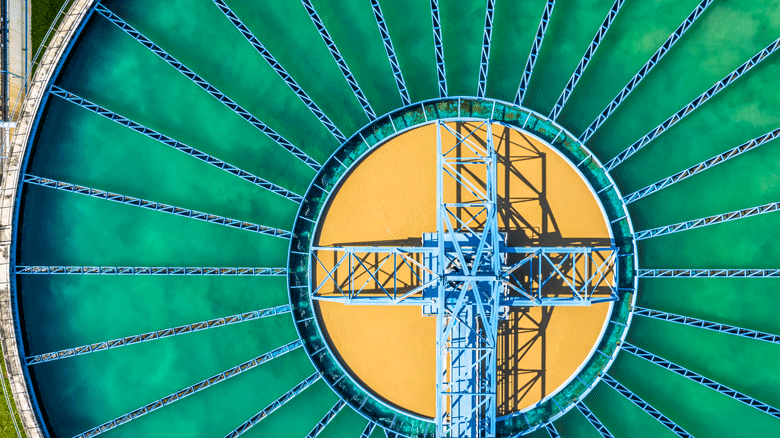

Water security is perhaps the greatest strategic challenge facing governments in the GCC. The population of the Gulf region has doubled in the past 20 years, while surface and ground water reserves have depleted.
Water scarcity acts as a break on growth that constrains efforts to diversify economies and limits urbanisation. At the World Economic Forum's 2019 annual meeting in Davos, Switzerland, participants ranked the threat of a water crisis as the biggest single risk facing North Africa and the Middle East.
In the Gulf region particularly, a bold new approach to water management can be seen – one that could potentially transform the security outlook for this scarce resource. Four trends are converging, and each has a role to play in the creation of a modern, efficient and sustainable water industry.
Efficiency first
The first trend is a greater focus on efficiency. This is a big priority now for water authorities. All stakeholders, including potential investors and banks that finance big water projects, are voicing concerns about the efficiency and environmental impact of the water sector.
Leaky networks are a key area of concern. According to some estimates, leaks cause 30-50 per cent of the water carried to be lost, which the GCC can ill afford.
As a result, water authorities are issuing more tenders to assess and repair the damage to their networks. Saudi Arabia plans to divide the country into four to six regions with a view to placing comprehensive water management contracts out to tender.
In the first phase of the programme, the kingdom will ask for a diagnosis of the investments and technology required to reduce water losses in the system – a sensible prerequisite before the cost of any long-term concession can be properly assessed. Qatar is developing a similar plan.
Technology input
The second trend is a far greater interest in technologies that can improve the efficiency, sustainability and energy consumption of the entire water industry. This chimes with the investments in IT that are taking place in other sectors, such as banking, communications and e-commerce.
 Digitalisation can deliver huge efficiencies in water management, in the same way that it is transforming other industries. Sensors in water pipes can pinpoint the site of leaks, helping to speed up repairs. Smart meters can provide valuable data to manage supply and demand. Investing in membrane technology can reduce the cost and increase the efficiency of desalination plants.
Digitalisation can deliver huge efficiencies in water management, in the same way that it is transforming other industries. Sensors in water pipes can pinpoint the site of leaks, helping to speed up repairs. Smart meters can provide valuable data to manage supply and demand. Investing in membrane technology can reduce the cost and increase the efficiency of desalination plants.
In addition, there is a huge interest in harnessing renewable energy to power desalination and water treatment plants, which would greatly diminish the carbon footprint of these facilities. Both Saudi Arabia and the UAE are drawing up plans for solar-powered desalination plants to treat ground water in remote regions.
Treated water
Water authorities are also looking to increase the amount of water that is recycled. At present, a very low percentage of treated wastewater is reused in the GCC – putting more pressure on the resource. The little that is recycled goes to water parks and other green areas.
With better micro-filtration, treated water would be safe to use in agriculture and to replenish depleted aquifers. Saudi Arabia, for one, has incorporated the treatment of wastewater for use in irrigation in recent tenders, which have also included the need to build parallel water networks to carry treated wastewater.
Unfortunately, recycling water for human consumption – the norm in cities such as Singapore or London – remains a cultural taboo in the Middle East. Public education campaigns would be a great help, particularly as population pressures mount.
Finally, there is a greater willingness on the part of governments to involve private sector companies in water management, because they bring two things – new technologies to modernise the sector and the know-how to train a new cadre of local water experts and managers.
This is all good news for the future of water security in the region. What is needed now is a greater willingness on the part of water authorities to properly value the technology and expertise that private operators can bring. The modernisation of the region’s water sector cannot wait, but it will not be achieved at bargain basement prices. This is an opportunity in which everyone stands to gain.
About the author
 Julio de la Rosa is the business development director for the Middle East at Acciona Agua
Julio de la Rosa is the business development director for the Middle East at Acciona Agua
You might also like...

Iran-US talks see earnest engagement
27 February 2026

Kuwait receives bids for $400m Subiya utilities plant works
27 February 2026

A partner’s perspective on working with Sharakat
27 February 2026

Egypt’s Obelisk equity move merits attention
27 February 2026
A MEED Subscription...
Subscribe or upgrade your current MEED.com package to support your strategic planning with the MENA region’s best source of business information. Proceed to our online shop below to find out more about the features in each package.
Take advantage of our introductory offers below for new subscribers and purchase your access today! If you are an existing client, please reach out to your account manager.








